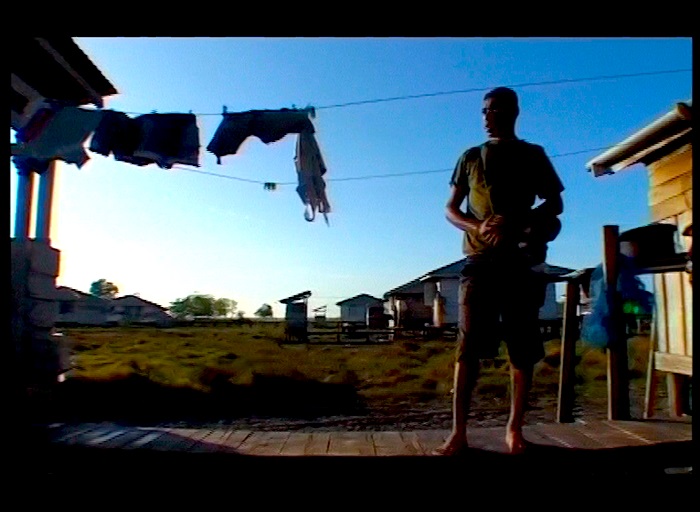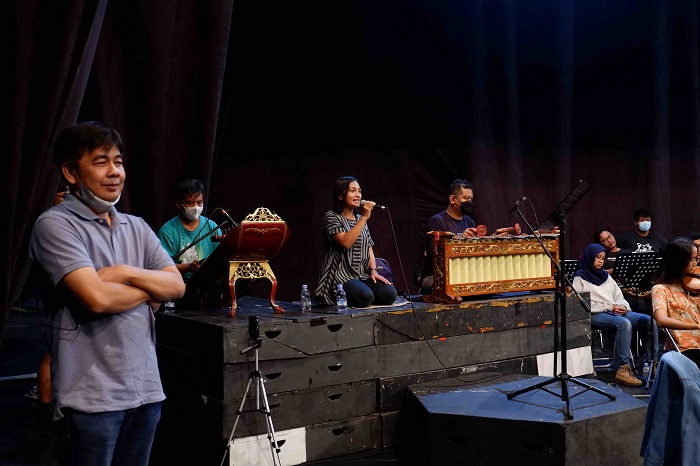Aryo Danusiri
Versi Bh Indonesia
The concept of ‘open knowledge’ holds that scientific knowledge can be shared readily with the general population. The openness of knowledge production resides in linking and connecting research of constructive engagement with society. Producing scientific knowledge always involves the management of instability and inconsistency, as was the case in the management of information and misinformation during the COVID-19 pandemic.
Openness is critical to the process of managing instability in the role of knowledge in society. I have come to this understanding based on my ethnographic research with individuals involved in agricultural and development projects in Papua and Aceh. Teaching the skills to understand the impact of technology on everyday life, as well as sensitivity to how people transform it, needs the use of disciplines like anthropology. In a new graduate anthropology course on ‘technology and the public’ at the University of Indonesia, I teach students to understand how to this process by drawing on the experiences that I have learned at the village level.
Stories from the everyday
In Merauke, I met Lukas Gebze, a young Marind fisherman who aspired to be a local entrepreneur in shrimp intercity trading. His ambition stemmed from the ‘papuanisasi’ program, which was popular in the 2000s and allowed Papuans to assert their indigenous rights as instructed by the Indonesian central government. In the context of the Marind peoples’ culture, this indigenous rights reclamation was translated as reclaiming ‘Animha’ (the sovereign human). Rather than observing how elites and ordinary Papuans engage in this reclamation process through language (for example, by attending to what was said or written about the process), I became involved in Lukas’ process of reclaiming his indigenous rights through his everyday experiences (or what anthropologists call sensory experiences) in building his business: learning to pack frozen shrimp, managing a small stall, building a business network, and shipping the commodity via airline transportation. Ultimately Lukas realised that the forms of bodily discipline and seed funding he received were insufficient to intervene in the market. An international and national indigenous rights movement was necessary to transform the intricate infrastructure in order for it to function structurally.
In Aceh, I met Pak Geuchik (a village head), whom members of a tsunami-affected village depended on to lead the housing reconstruction process funded by an international non-government organisation (NGO). The state required ‘gotong-royong’ or participatory reconstruction as the rudimentary approach, but the people and the NGO had different ways of interpreting the gotong-royong approach. While the people saw the ideal house as a furnished house, for the NGO, building an earthquake-resistant house should be the priority even though it carried a huge cost. In the end, people could not live in their desirable houses, but they developed a new sensibility of how to deal with the development sector as a global aid machine.

Both anthropological cases taught me that ‘masyarakat adat’ or ‘gotong royong’ are cultural forms produced by state policy-making, framed as political technologies, and subject to negotiation in everyday life. In response, authorities like the state or the international development sector transmit cultural forms to instruct people how to live well. In turn, people frame these forms as objects that can be transformed as instruments, which they can use for their own ends.
Teaching and learning
In the graduate course I teach at the University of Indonesia on ‘technology and the public’, we discuss the diversity of political technologies by examining their openness and closeness in circulation. The dominant understanding dictates that culture and technology belong in separate realms. By referring back to everyday life and sensory experiences in everyday life, we are interrogating culture as technology.
The course looks beyond industrial technologies, which have been a minor subject in the social science and humanities in Indonesia. The dominant vision of ‘technology’ as a logic framed as an object that is a means to an end emerged from the development of this concept in the sciences and harnessed by the state. In our course, we show how the relationship between means and ends is not immediate but is a negotiation in a specific context, as demonstrated in the experiences of Pak Geuchik in Aceh or Lukas Gebze in Papua. According to the normative viewpoint, a specific machine is delivered to a user with preconceived notions about how a given technology works. If the user fails to follow the instructions, it will be considered an error. In the perspective we encourage in our course, we teach students that a specific machine in the hands of a user is an object with a more open set of possibilities. It can be used in ways other than those specified in the instructional guide. In our classes we are not interested in a single machine function but in multiple possible uses. Students learn that these applications must be examined in specific contexts, which differ from the ideal function of the particular technology. One of the key points we seek to teach students in our course is to trace controversy associated with dominant technologies and their unexpected outcomes is.
Another example of the approach taught in ‘technology and the public’ emerges through my collaboration with Halida Bunga Fisandra from the Yogyakarta Royal Orchestra, founded by Sultan Hamengkubuwono X. The case study based on Fisandra’s masters’ thesis, calls into question the possibility of decolonising Western music in the context of an orchestra that combines Javanese gamelan music with modern musical instruments. It tells violent stories of how the orchestra assimilates Western harmonious instruments into their own indigenous technology. These stories are not about the chronological history of the orchestra-making; instead, we observe the temporality of Fisandra’s movements between contention and confusion in the translation process. One can argue that music orchestra is an elite technology, but Finsandra’s interest is related to understanding the hybrid sensibility that the orchestra offers to public forms of listening and playing music.
In another project, I collaborated with my graduate student Dea Riffia Bella on the controversial ‘Sekolah Bahasa Hamap’ project in Alor, East Nusa Tenggara. The school was founded by an aspiring multi-talented local artist who happens to be the Hamap family’s son-in-law. Densa, the artist, has long been fascinated by his wife’s ethnic traditions: the Hamap People’s artistic expressions. The project drew the attention of the local government, which later agreed to fund it through a cultural fund. It soon became embroiled in controversy when a young Hamap bureaucrat claimed the school should be immediately transferred to and developed by an internal member of the ethnic group. Some Hamap senior members, on the other hand, argued that Densa has a genuine and committed intention to resurrect their ethnic identity, which has been marginalised by colonial and postcolonial states.
In an age where Indonesia is fascinated with major infrastructure projects, the openness of knowledge is not only focused on its distribution but on being critically engaged with the current modes of knowledge production, in particular those conceived of and controlled by authoritative figures. Such an approach is important because it scrutinises how knowledge can be exchanged in ways other than as a commodity or something to be bought and sold on the market. In our course, we teach students that culture is certainly one part of this process of commodification, but that we can only understand living with technology – and inequality in its distribution – by listening to stories like those that I have introduced in this article, that emerge from the lives of everyday Indonesians.
Aryo Danusiri (aryo.danusiri@ui.ac.id) is an assistant professor at the Department of Anthropology at the University of Indonesia. He is an adjunct senior researcher at BRIN’s Area Studies Research Center. Currently, he is a research fellow at International Institute for Asian Studies in Leiden.
